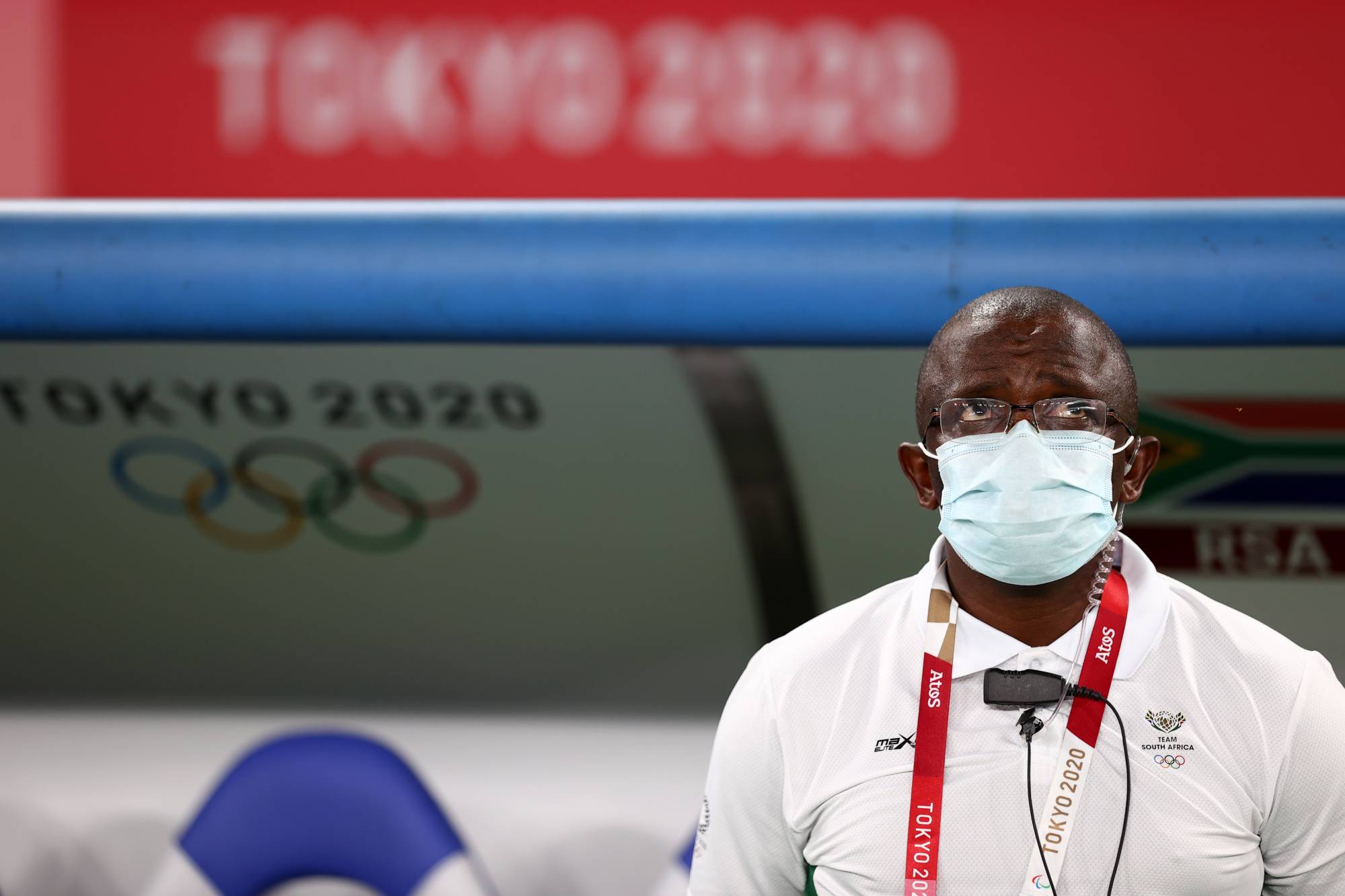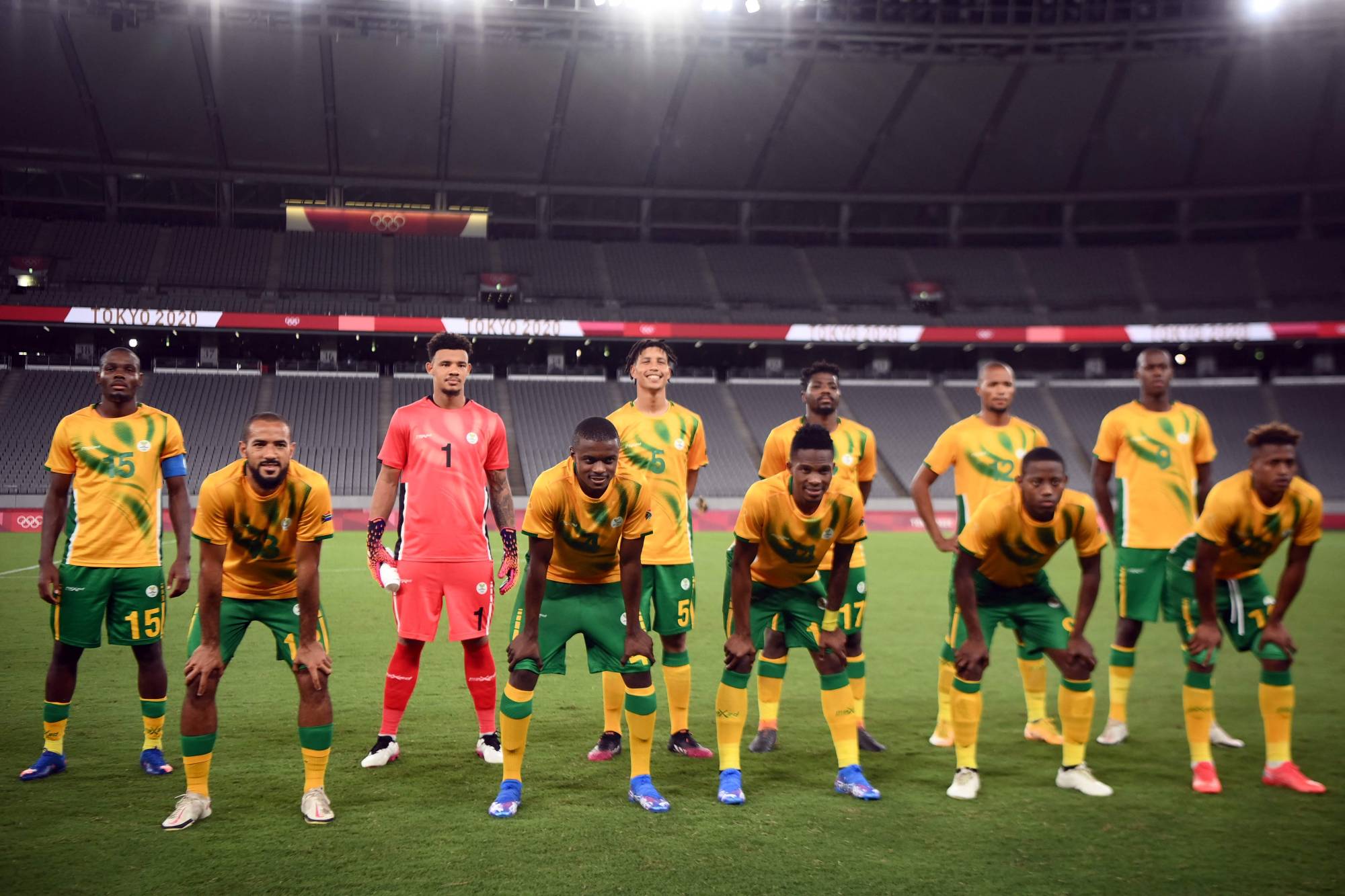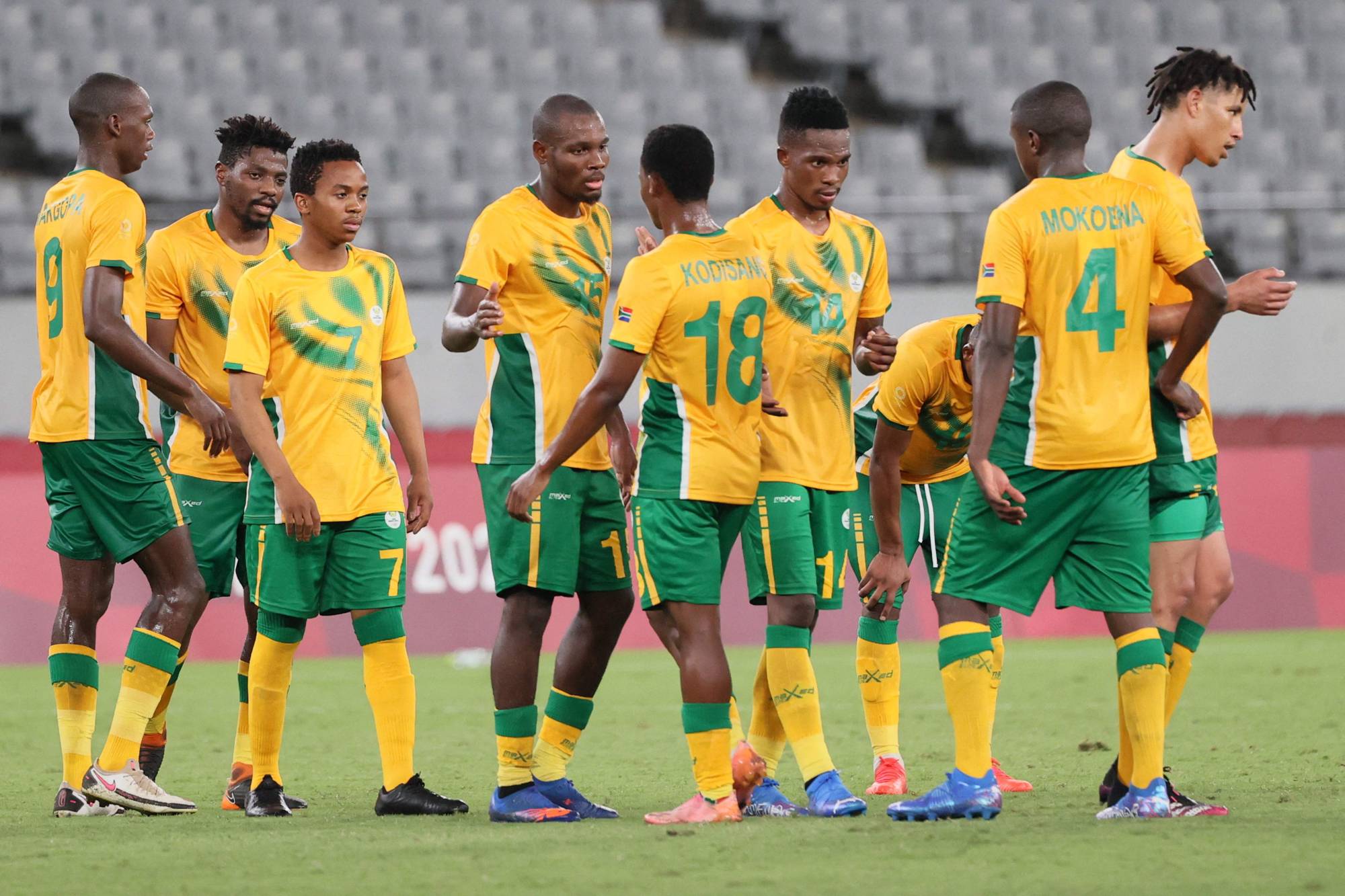The South African soccer team has dealt with isolation, insufficient training time and a host of other issues since two players and a video analyst tested positive for COVID-19 on Sunday.
Eighteen players were later identified as close contacts, which threw the team’s preparations for its Tokyo Olympic opener against Japan into disarray.
Coach David Notoane said the situation was difficult mentally and physically for his players, but attributed it to the rules in place without voicing an opinion on whether it was fair or unfair.
What he considers out of bounds, however, is the way he feels his players have been treated in the aftermath, which goes beyond the logistical complexities a positive COVID-19 result can yield.
“I think one has to mention the issue of stigmatization,” Notoane said after South Africa’s 1-0 loss to Japan at Tokyo Stadium on Thursday night. “Because often when people come across us, you see people running away and I think that’s a little bit disrespectful. COVID is something that we live with, (something) we live with in our own lives outside of the tournament. So if that could change, it’s something (we) would appreciate as a team, and treat us a little bit humanely.
“When people start to run away from you when you approach them, it’s as if there is something wrong with you. The truth of the matter is there is nothing wrong with us. We’ve tested five days, we are negative. It could happen to anyone out there.”

COVID-19 figures to remain a major part of these Olympics. Chilean taekwondo athlete Fernanda Aguirre and Dutch skateboarder Candy Jacobs are among the competitors who have been ruled out of the games due to testing positive.
South Africa’s James Monyane and Kamohelo Mahlatsi were the first athletes in the Olympic Village to contract the virus.
The members of the South African team listed as close contacts then went isolation, limiting the time the team had to prepare to face Japan and get acclimated to the heat, as they are coming from a nation that experiences its coolest temperatures from June to August.
“We couldn’t go out to train,” captain Repo Malepe said. “That limited our preparations and our (acclimation), because it was not easy to sit in the room.”
There was no guarantee Thursday’s match would even take place. As close contacts, the South African players needed negative PCR test results within six hours of the match in order to take part. South Africa also needed to have at least 13 players available, per FIFA rules.



An announcement the match would take place came around two hours before the scheduled 8 p.m. start.
South Africa still played with a slightly shortened bench and deployed a defensive strategy for most of the match. Notoane said the players performed better than he expected physically.
“We lost a few players and the quality of the team was diluted a bit,” Notoane said. “So we had to mentally pull together as a group.
“I’ve always said to the players that we have to take the spirit of the African lion into this tournament. Because when you’re in the jungle, which is where we are at the moment … it’s about survival. You could see today, we played the kind of football that was survival football. It’s not naturally how we want to play football. We had to manage the physical aspects of the game.”
An already taxed team will not have much time to rest with a match against France scheduled for Sunday.



“Our strategy today was to take something out of this game, because I did expect that physically it would be very challenging,” Notoane said. “When you go back into isolation, the mental effects could come in, because oxygen is very, very important for recuperation — being outside, refreshed. But it’s not what we have at the moment.
“We’ll keep the team fresh for the next game against France, I can assure you that. We know what we need to do.”
Notoane is also hopeful others can be understanding of his team’s plight as the Olympics move forward. He praised Japan for the way Samurai Blue competed against the South Africans during their match.
“I think the reaction of the Japanese team was good towards the end,” he said. “We expected perhaps the worst but I think the game was played in the spirit that demonstrates that we are here also for solidarity.”
In a time of both misinformation and too much information, quality journalism is more crucial than ever.
By subscribing, you can help us get the story right.
SUBSCRIBE NOW


